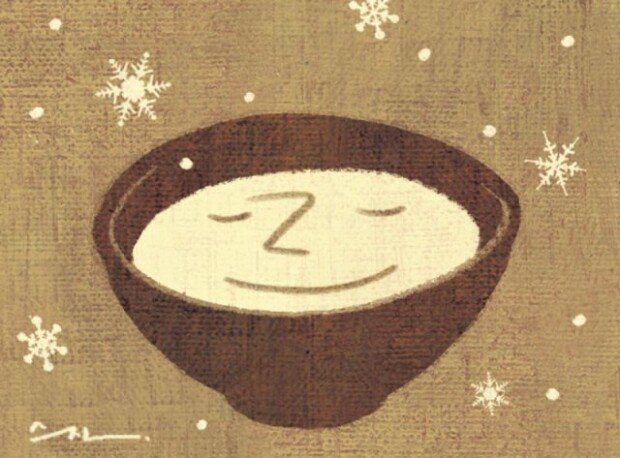A drink invitation
A drink invitation
Posted December. 17, 2021 07:54,
Updated December. 17, 2021 07:54

Sitting close by cozy fire pits and listening to wine boiling, the poet is flushed with excitement. He could easily see in his mind’s eye that blue-grey colored fermented grains of rice would be buoying up in the wine jug like a mound of ants. Cloudy sky seems to spill snow at any time, but the poet does not bother, as he plans to invite his friend over for freshly brewed wine.
The poet wishes to have his friend over, at this silent and lovely night, hearing together the melodious sound of sweet rice wine bubbling as if breathing―the wine would taste much better, and the friendship would deepen further. A short letter of invitation, composed of some 20 words, is brimming with expectation. “Come and have a drink with me, would you?” The poet’s discreet question is a careful consideration, as he does not want to alarm his friend with a sudden invitation. The friend would have joyously come running upon receiving the letter, without even a moment to recollect Du Fu’s melancholic song that goes, “Having no company to empty wine glasses, I wait till a crow comes and peeks at night.”
Liu Xiogu was a scholar living in a remote town, whom Bai Juyi was frequently socializing with when he was demoted to the Guan River region in South. Liu Xiogu and Bai Juyi were close friends, as described in Bai Juyi’s other poem that reads, “We were too seized up playing Go and placing bets on drinks to realize the morning has arrived.” Liu Xiogu means the nineteenth son of the Liu family.
In the old days, when multi-generation families lived together under one roof, people used to call one another by order of birth, regardless of whether they were brothers and sisters by blood or cousins. Yet they distinguished between men and women when giving ranks. Poet Won Jin was called Won Jiu, meaning the ninth son of the Won family, and Liu Yuxi was similarly called Liu Ershiba, meaning the twenty-eighth son of the Liu family.







